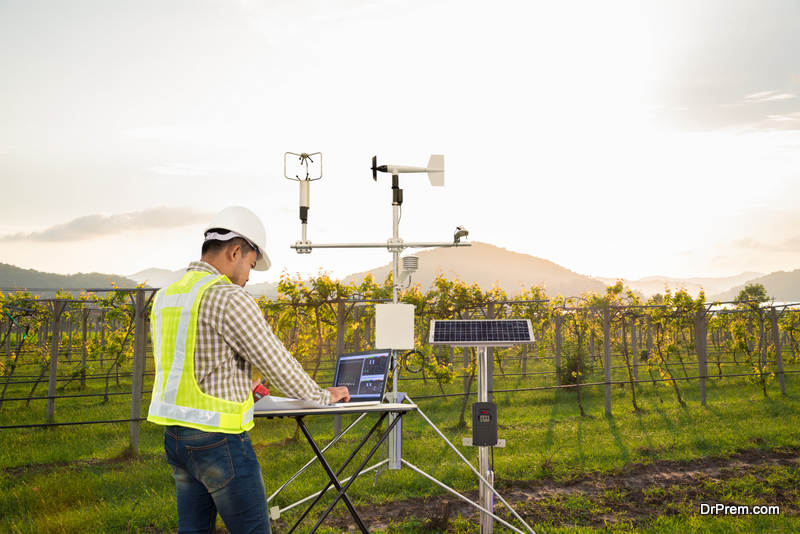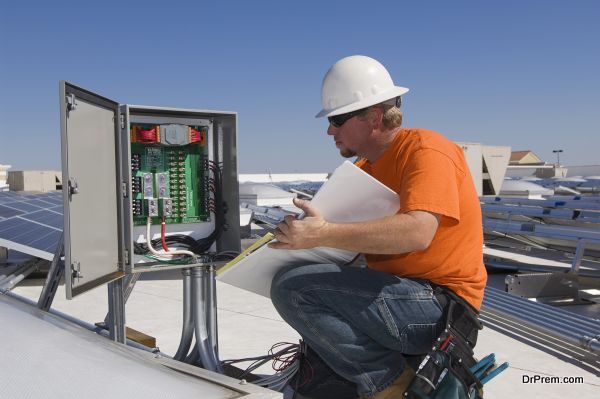The weather is among the factors many individuals use to decide where to settle or spend the day. Chasing the sun makes sense if you want to go on vacation to have a convenient day commuting to school or work. Watching the news or listening to the radio for the weather forecast is how most people stay updated on the weather.
But weather predictions aren’t always accurate, and they come with limitations. The following are the benefits and disadvantages of keeping track of the weather.
Advantages of Tracking Weather
Weather forecasting has many benefits, not only for avoiding the rain when heading out. Many industries also bank on the weather to support the growing population.
1. Obtaining Valuable Insight For Farming
Weather monitoring or forecasting is essential to keep track of the food supply for humans and animals. The agricultural sector benefits from forecasting by working out solutions that help cut costs, avoid overwatering or underwatering crops, and contribute to higher crop production.
At the same time, farmers can set up data-based agronomy solutions through the Internet of Things (IoT) technology. They can work around common challenges of farming to maximize the use of labor and water better and keep the excellent condition of crops. There are various types of weather automated systems that can help farmers monitor weather status to better prepare for the onslaught of strong winds and rain oncrops.
Among the contributions of IoT technology is enabling weather-tracking sensors in farm fields to get precise data. It helps farmers make informed decisions concerning the amount of water needed and planting-related tasks. As a result, they can save resources like time and money.
2. Prevention Of Floods
Different areas worldwide are experiencing the impact of global warming through devastating floods. Flash floods come after different types of storms that eventually produce excessive flooding. These destroy livelihoods, damage infrastructures, increase health risks, and contribute to loss of life in the worst cases. With weather monitoring solutions, those in authority can measure rainfall and make timely interventions.
People use a mix of technology to monitor or detect flooding, such as satellites, rain gauges, and radars. Rain gauges can make accurate predictions and produce reports in real time.
Satellites are less accurate and direct, but they have a broader range appropriate for mountainous areas, oceans, and areas with a small population.
Radars can detect the core of rainfalls and precipitations along with the potential duration of rainfall. They also can track the development of storms.
Disadvantages of Weather Monitoring
1. Lack Of Accuracy
While technological advancements continue to progress, weather forecasts are only sometimes accurate. It’s almost impossible to predict if it’ll be sunny or rainy the whole day. Regardless if you have the right staff who are experts on weather forecasting, accuracy will remain unsure.
Research conducted by Pennsylvania State University with other international meteorologists primarily aims to pinpoint how far they can predict the weather using weather models and supercomputers. While the previous number of days was 10 days into the future with regard to accuracy, they found out that they could only get more accurate reports if they added 5 more days to make predictions.
Meteorologists believe that it’s due to the butterfly effect. Turbulent flows can form layers out of powerful storms and air flows. Even if a tiny disturbance is as tiny as a butterfly and its wings in that layer, they can build on each other and create random weather patterns. The variations of these patterns can be challenging to predict, making it difficult in spite of the latest weather monitoring efforts.
2. Forecasting Is Expensive
Weather forecasting accounts for the USD$1.5 billion market and will continue to rise to USD$2.3 billion by 2025. Various organizations benefit from weather forecasting, such as businesses and companies, as it allows them to make advanced plans to prevent damage from heavy rain, extreme winds, and heat waves.
Weather forecasting can use significant resources to get close-to-accurate predictions when the correct measures and devices are in place. That also includes utilizing weather forecasting services on which organizations must invest money. While it can dent revenue, organizations should also consider the long-term benefits of weather monitoring to the business. Preparing for disasters can minimize damages to their businesses and save future costs.
Conclusion
Weather forecasting has both pros and cons. While it’s not accurate, it can be a force to reckon with when utilized with measures and planning to avoid potential damage. Devices can only do so much while trying to predict the weather. Nonetheless, weather monitoring is worth planning for, and those experiencing extremities must learn to adapt using various measures.
Article Submitted By Community Writer




